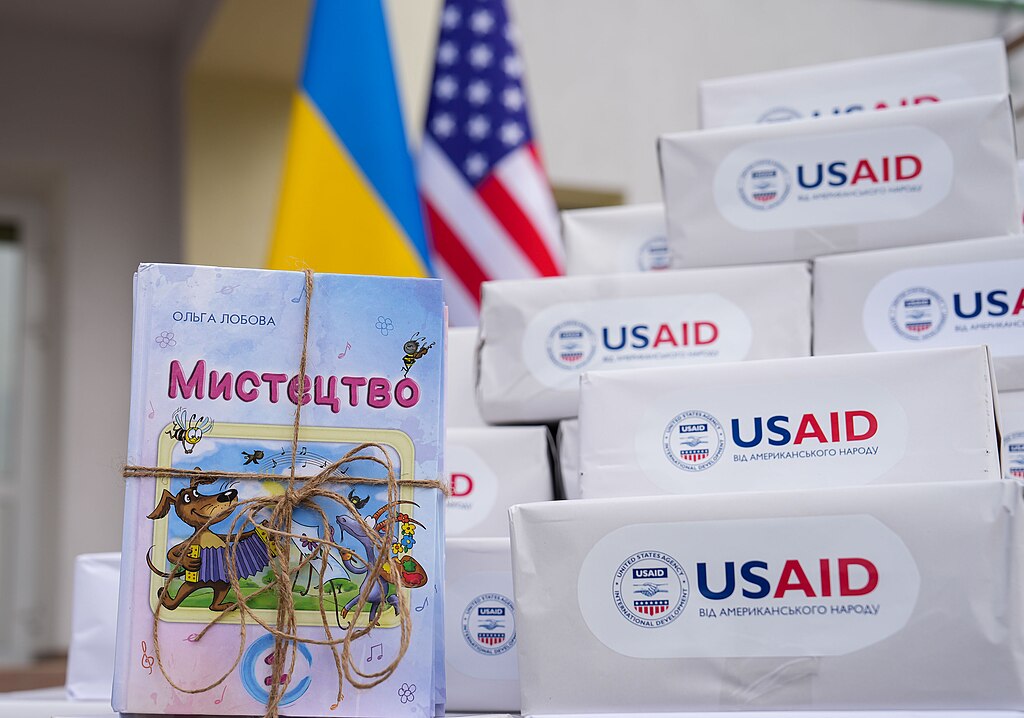The Trump administration is reviewing U.S. foreign aid programs following a broad freeze ordered by President Donald Trump last month. U.S. Secretary of State Marco Rubio announced Wednesday that USAID is identifying "specially designated programs" exempt from stop-work orders that halted most U.S. aid efforts.
The freeze, which took effect on Jan. 20, led to the global recall of USAID personnel and the layoff of hundreds of contractors. Trump has tasked billionaire Elon Musk with scaling down the agency, accusing it of corruption without providing evidence. Rubio emphasized that only programs aligned with U.S. national interests would be exempt.
State Department officials are actively issuing waivers for select programs, but details remain unclear. Rubio criticized USAID staff for allegedly not cooperating with the administration’s efforts to assess ongoing programs.
Although emergency food assistance was initially excluded from the freeze, Reuters reported that U.S. food aid purchases have stopped, affecting wheat, soybeans, and other U.S. farm products. Aid organizations now face uncertainty, potentially disrupting food distribution in Madagascar, Tanzania, and Honduras.
Rubio stressed that waivers for life-saving assistance have been issued, but the lack of clarity in Trump’s directive has left aid groups struggling to determine which programs can continue. The administration remains focused on aligning foreign aid with its "America First" policy, ensuring U.S. resources serve strategic national interests.
This freeze marks a significant shift in U.S. foreign aid policy, raising concerns among humanitarian groups about the future of critical assistance programs.



 RFK Jr. Overhauls Federal Autism Panel, Sparking Medical Community Backlash
RFK Jr. Overhauls Federal Autism Panel, Sparking Medical Community Backlash  New York Legalizes Medical Aid in Dying for Terminally Ill Patients
New York Legalizes Medical Aid in Dying for Terminally Ill Patients  South Korea Assures U.S. on Trade Deal Commitments Amid Tariff Concerns
South Korea Assures U.S. on Trade Deal Commitments Amid Tariff Concerns  Nighttime Shelling Causes Serious Damage in Russia’s Belgorod Region Near Ukraine Border
Nighttime Shelling Causes Serious Damage in Russia’s Belgorod Region Near Ukraine Border  Minnesota Judge Rejects Bid to Halt Trump Immigration Enforcement in Minneapolis
Minnesota Judge Rejects Bid to Halt Trump Immigration Enforcement in Minneapolis  Trump Family Files $10 Billion Lawsuit Over IRS Tax Disclosure
Trump Family Files $10 Billion Lawsuit Over IRS Tax Disclosure  Trump’s Inflation Claims Clash With Voters’ Cost-of-Living Reality
Trump’s Inflation Claims Clash With Voters’ Cost-of-Living Reality  Trump Allows Commercial Fishing in Protected New England Waters
Trump Allows Commercial Fishing in Protected New England Waters  U.S.-India Trade Framework Signals Major Shift in Tariffs, Energy, and Supply Chains
U.S.-India Trade Framework Signals Major Shift in Tariffs, Energy, and Supply Chains  Trump Signs “America First Arms Transfer Strategy” to Prioritize U.S. Weapons Sales
Trump Signs “America First Arms Transfer Strategy” to Prioritize U.S. Weapons Sales  Trump Signs Executive Order Threatening 25% Tariffs on Countries Trading With Iran
Trump Signs Executive Order Threatening 25% Tariffs on Countries Trading With Iran  Pentagon and Anthropic Clash Over AI Safeguards in National Security Use
Pentagon and Anthropic Clash Over AI Safeguards in National Security Use  Jack Lang Resigns as Head of Arab World Institute Amid Epstein Controversy
Jack Lang Resigns as Head of Arab World Institute Amid Epstein Controversy  Trump Extends AGOA Trade Program for Africa Through 2026, Supporting Jobs and U.S.-Africa Trade
Trump Extends AGOA Trade Program for Africa Through 2026, Supporting Jobs and U.S.-Africa Trade  Norway Opens Corruption Probe Into Former PM and Nobel Committee Chair Thorbjoern Jagland Over Epstein Links
Norway Opens Corruption Probe Into Former PM and Nobel Committee Chair Thorbjoern Jagland Over Epstein Links  U.S. to Begin Paying UN Dues as Financial Crisis Spurs Push for Reforms
U.S. to Begin Paying UN Dues as Financial Crisis Spurs Push for Reforms  Iran–U.S. Nuclear Talks in Oman Face Major Hurdles Amid Rising Regional Tensions
Iran–U.S. Nuclear Talks in Oman Face Major Hurdles Amid Rising Regional Tensions 































